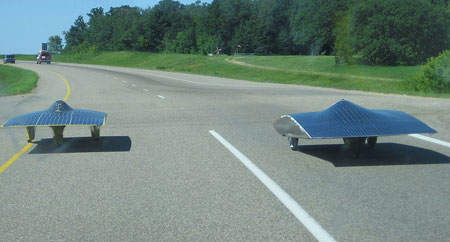
Toyota is apparently working on an electric vehicle that uses solar panels installed on the vehicle to recharge itself, according to Japanese business daily The Nikkei. It is of course just one way other than brake energy regeneration to recharge the car’s batteries. The car will also support plug-in charging, which could also be solar-sourced via solar panels installed on a home’s roof.
This piece of news seems to coincide with the fact that it’s battery partner Panasonic will be acquiring Sanyo, which is supposed to be a leader in solar energy technology. However, The Nikkei did not cite any sources when producing the report.
First talk of a Toyota powered by solar panels surfaced in July last year, also from The Nikkei. That report was followed by another one by Reuters which claimed the solar panels would be sourced from Kyocera, and would only produce enough power to run a car’s air conditioning, which kinda makes sense - a car’s air conditioning unit is probably run at full blast during a hot day, with plenty of sunlight!
The Reuters report also carried a quote which said it would be very difficult for solar energy to power anything more than that in real time, so it is more of a symbolic gesture, one that will be eating into the cost of the car, so it will truly be only for the rich and green-conscious for the time being,
There are actually solar cars around, heard of the World Solar Challenge? Participants race across the Australian continent in solar cars that weigh only about less than 200kg, have good aerodynamics, are quite large because of the many solar panels that need to be installed on the car, and can typically go up to a top speed of between 130km/h to 140km/h. Also, a company called Solar Electric Vehicles based in the US provides a service that retrofits the Toyota Prius and other Toyota hybrids with solar panels that can provide up to 1200 watt hours a day of energy.
No comments:
Post a Comment